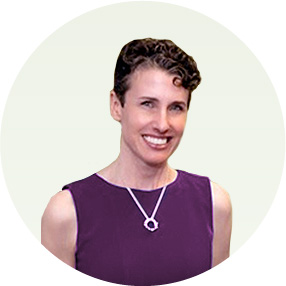Podcast Summary
Discussing Mental Health and the Venture X Card: The Venture X Card offers unlimited 2X miles and premium travel benefits, while Kroger provides affordable quality products. Understanding and empathy towards mental health conditions like OCD is essential.
The Capital One Venture X Card offers unlimited 2X miles on every purchase, premium travel benefits like airport lounge access and a $300 annual travel credit, while Kroger brand products provide proven quality at affordable prices, guaranteed by the company. Chuck shared a personal connection to actor Tony Shalhoub, who plays the quirky detective Adrian Monk in the TV show "Monk," and used the show as a segue to discuss Obsessive Compulsive Disorder (OCD). While OCD may seem foreign to some, it's a mental health condition characterized by recurring and intrusive thoughts, ideas, sensations, or behaviors that cause distress and anxiety. It's important to remember that everyone experiences life differently, and understanding and empathy towards those with OCD or any other condition can go a long way. The discussion may have started with the Venture X Card and Kroger brand products, but the true value was in the shared stories and insights along the way.
Understanding the Impact of OCD: OCD involves obsessive thoughts leading to compulsive behaviors that cannot be controlled and significantly impact daily life, unlike odd habits or quirks.
While some people may joke about having Obsessive Compulsive Disorder (OCD) or have quirky habits, true OCD involves obsessive thoughts that lead to compulsive behaviors that the person cannot control and that significantly impact their daily life. OCD is not just about having a preference or a habit, but rather an obsessive thought that leads to a compulsive behavior that the person feels the urgent need to repeat over and over again to alleviate their anxiety. For example, washing hands repeatedly because of an obsessive thought that they are dirty, even after the hands have been washed multiple times. This compulsive behavior does not provide lasting relief and can take up a significant amount of time and energy. It's important to understand that having odd habits or quirks does not equate to having OCD. The difference lies in the impact these behaviors have on an individual's life. OCD is a serious mental health condition that requires professional treatment.
Understanding OCD and its Manifestations: OCD is a complex condition with various manifestations, including obsessions with germs, symmetry, order, and doubt. Resources like Zigazoo offer a safe space for children with OCD, while THR Charts help with content discovery. An article discusses the challenges of OCD in restaurants.
Obsessive-Compulsive Disorder (OCD) is a complex condition that can manifest in various ways, including obsessions with germs, symmetry, order, and doubt. The speaker shared personal experiences of OCD related to symmetry and touching objects, while also mentioning the existence of a kid-friendly social media platform called Zigazoo, which offers a safe environment for children to create content. The discussion also touched upon the challenges of finding content to watch in today's media landscape and the introduction of THR Charts as a solution. Lastly, the speaker shared an article about OCD in restaurants and how the condition can be particularly challenging in such environments due to factors like shared utensils and handling of food by others. Overall, the conversation highlighted the unique challenges and experiences associated with OCD and introduced resources for managing various aspects of life, from content discovery to social media use and dining out.
Experiencing the Challenges of Obsessive-Compulsive Disorder: OCD can cause significant distress and impact daily life with symptoms like uncertainty, intrusive thoughts, embarrassment, and potential avoidance of public places, contributing to conditions like agoraphobia. Well-known figures, like basketball player Chris Jackson, have dealt with these challenges.
Obsessive-Compulsive Disorder (OCD) can manifest in various ways, causing significant distress and impact on daily life. The speaker shared an experience of uncertainty about signing checks and the intrusive thoughts of reporting potential dangers, such as an unstable chair in a restaurant. These compulsions can lead to embarrassment and avoidance of public places, potentially contributing to agoraphobia. The mental struggle of knowing that these issues are all in one's head makes the condition even more challenging. An example of a well-known figure dealing with OCD is Chris Jackson, a basketball player who had trouble leaving his house due to his compulsions, which may have affected his career. Overall, OCD is a complex mental health condition that can lead to various distressing symptoms and significant challenges in everyday life.
Exploring the Impact of Technology on Our Experiences: Technology enhances our experiences through social media and streaming services, but be aware of potential downsides and seek help when needed.
Technology plays a significant role in shaping our experiences, whether it's through social media platforms like Zigazoo, which offer a safe space for kids to connect and share content, or streaming services like THR charts, which help us navigate the vast amount of media available. However, it's important to note that technology can also bring challenges, such as obsessive behaviors that can lead to harmful consequences. For instance, a case study showed that a woman's compulsive sexual behavior, known as Nymphomania, was linked to Obsessive-Compulsive Disorder (OCD). This highlights the importance of being aware of the potential downsides of technology use and seeking help when needed. In the case of social media, platforms like Zigazoo offer a safer alternative by providing a controlled environment for kids to engage with each other, while THR charts help us make informed decisions about what to watch.
A woman's experience with OCD and its impact on her life: OCD can be managed and treated through CBT, which includes exposure and response prevention techniques, and sometimes antidepressants.
Obsessive Compulsive Disorder (OCD) is a disorder that can significantly impact an individual's life. The discussion highlighted a woman's experience with OCD, which included compulsive behavior such as having sex multiple times a day. However, she derived no pleasure from this behavior and was afraid of being abandoned. Cognitive Behavioral Therapy (CBT) is a common treatment for OCD, which includes techniques like exposure and response prevention. This involves confronting fears or obsessions and learning to cope without engaging in compulsive behaviors. Through therapy and sometimes antidepressants, OCD can be managed and treated. It's essential to remember that there is hope for those struggling with OCD, and they are not alone. CBT is an effective method for managing and curing this disorder.
Insights into Hollywood's Entertainment Industry with THR Charts: THR charts on HollywoodReporter.com offer valuable data and trends on box office revenue, streaming numbers, genres, and popular actors/actresses in the entertainment industry.
The Hollywood Reporter's THR charts provide valuable insights into the entertainment industry. These charts offer a visual representation of various aspects of the industry, from box office revenue to streaming numbers. By checking out the THR charts on HollywoodReporter.com, you can stay informed about the latest trends and developments in Hollywood. For instance, the box office charts can help you understand which movies are performing well at the box office, while the streaming charts can give you an idea of which shows are popular on streaming platforms. Additionally, the charts can help you identify patterns and trends in the industry, such as which genres are currently popular or which actors and actresses are in high demand. Furthermore, the THR charts can be useful for industry professionals, such as producers, agents, and studios, who need to stay up-to-date on the latest industry trends and data. However, they can also be interesting and informative for casual fans who want to learn more about the entertainment industry and the shows and movies they love. Overall, the THR charts on HollywoodReporter.com offer a wealth of information and insights into the entertainment industry, making them an essential resource for anyone interested in Hollywood.







